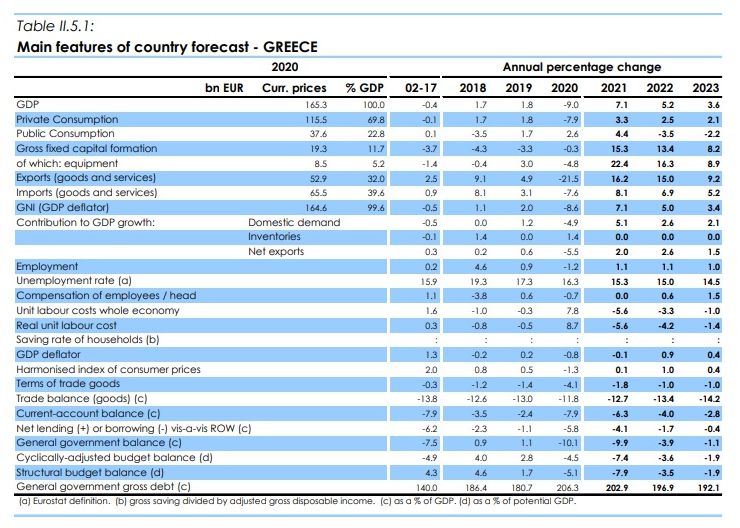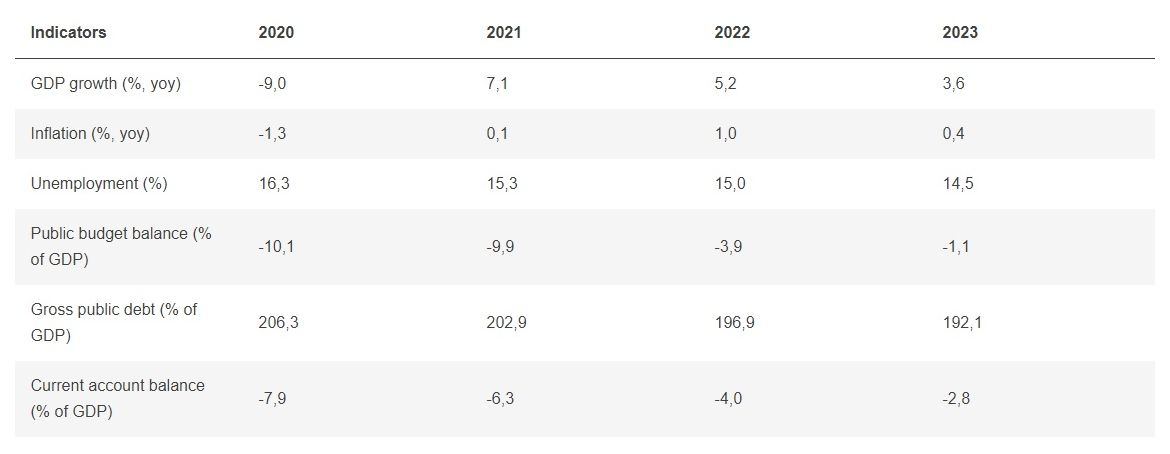EU Raises 2021 Growth Forecast for Greece to 7.1%
The European Commission revised its outlook for growth in Greece to 7.1 percent from its previous estimate of 4.1 percent as the country marks the third fastest rate in the eurozone driven in large part by an unanticipated tourist season.
According to the European Economic Forecast for autumn, inflation for 2021 is set to remain at a low 0.1 percent compared to the eurozone average of 2.4 percent.
“The recovery of the Greek economy is gaining traction, primarily driven by domestic demand and the better-than-expected tourist season,” said the report.
According to the Commission, Greece is expected to post a growth rate of 7.1 percent this year, after Ireland and Estonia.
Analysts expect GDP to grow at a rate of 5.2 percent in 2022 and by 3.6 percent in 2023.
“The impact of the pandemic is expected to gradually soften, while the accommodative fiscal and monetary policy, coupled with the strong boost from the Recovery and Resilience Plan are set to sustain the momentum going forward,” the report notes.
The Commission adds that emergency support measures implemented to address the evolving needs of the economy are expected to be phased out by the end of year helping narrow the general government deficit.
Unemployment is expected to drop to 15.3 percent in 2021 still among the highest in the eurozone at an average of 7.9 percent. Projections see it falling to 15.0 percent in 2022 and to 14.5 percent in 2023 – compared to the 7.3 percent eurozone average, the report said.
“Despite mounting headwinds, the EU economy is to keep expanding over the forecast horizon. Most member states are expected to reach the pre-pandemic volume of output by the end of 2021, while a few others will fully recover in 2022,” said Paolo Gentiloni, European commissioner for economy.
Investment activity is expected to play a key role in 2022-2023 growth with public and private investments and projects supported under the Recovery and Resilience Plan set to sustain momentum.
Investments are estimated at increasing by 15.3 percent this year, by 13.4 percent in 2022, and by 8.2 percent in 2023 – the second highest rise across Europe after Italy.
Meanwhile, public debt is expected to decrease to 203 percent of GDP in 2021, decline further to around 197 percent in 2022 and to 192.1 percent in 2023, supported by the economic recovery.
Commenting on the news, Finance Minister Christos Staikouras said the autumn forecasts confirm that the recovery and growth of the Greek economy will be “strong and sustainable”, much stronger than the initial estimates and the European average.
Late last month, Greece’s most influential think-tank, the Foundation of Economic and Industrial Research (IOBE) said it expected the Greek economy to grow at a rate of 8-8.5 percent in 2021, a rate of 4 percent in 2022, and with a baseline scenario placing unemployment for 2022 at 14.3 percent.
The Commission report warns that a worsening turn in the pandemic and possible repercussions on tourism may hinder projected growth. Analysts also expressed concern over how fast the support measures introduced to address the health crisis will be petered out.







